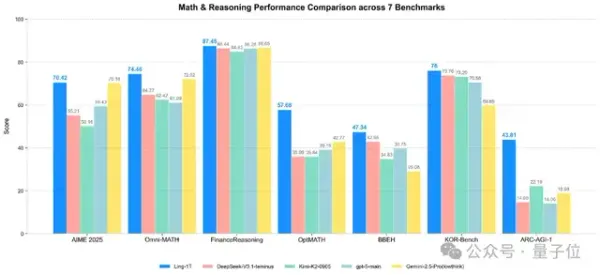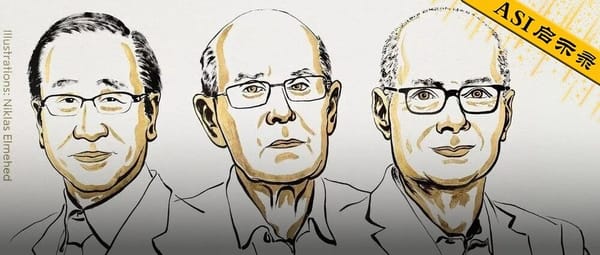Just Announced: 2025 Nobel Prize in Chemistry — Another Win for a Japanese Scientist
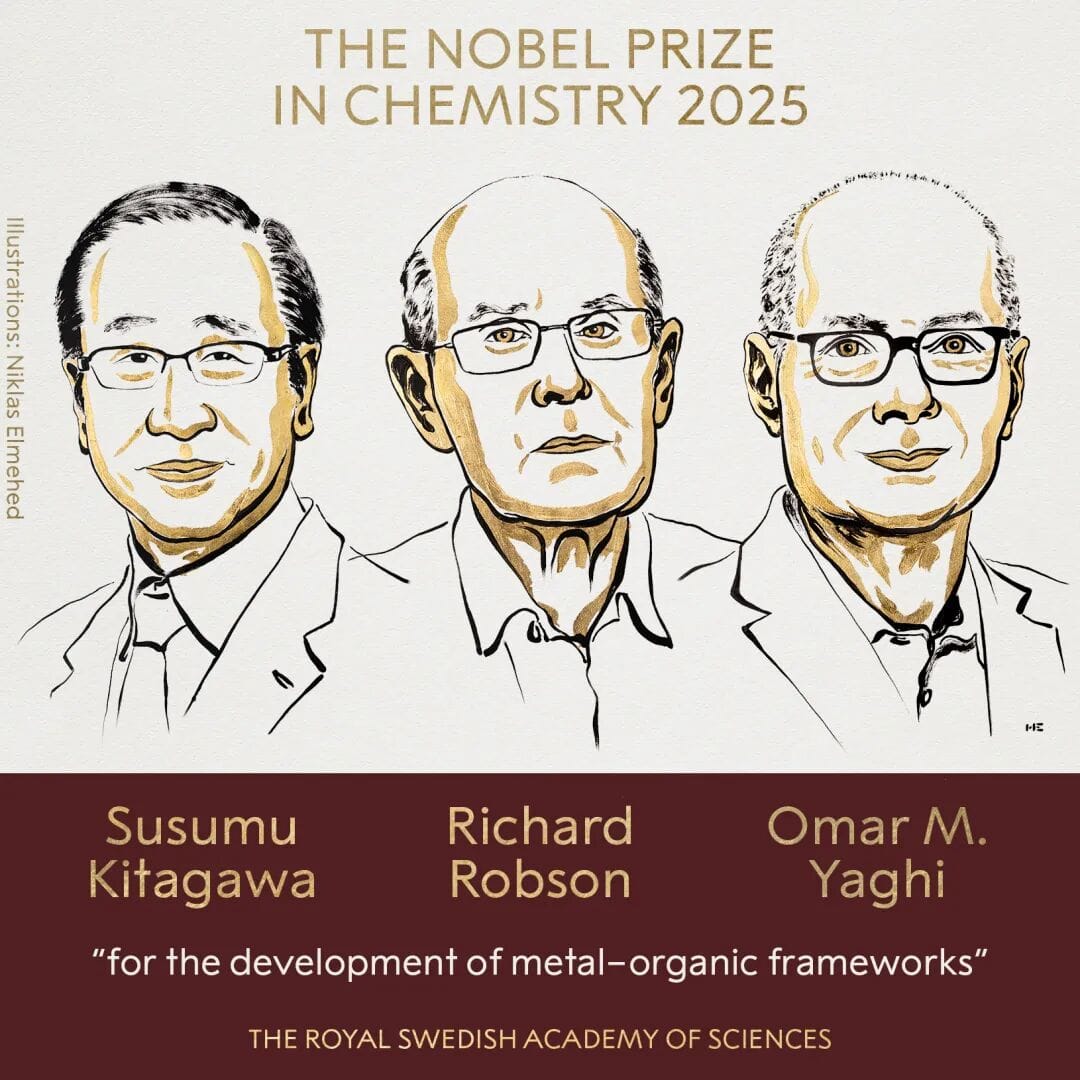
Announcement: Nobel Prize in Chemistry — Edited by Datawhale
Just moments ago, the Royal Swedish Academy of Sciences announced the final Nobel Prize in the Natural Sciences for this year — the 2025 Nobel Prize in Chemistry.
The award goes to:
- Susumu Kitagawa
- Richard Robson
- Omar M. Yaghi
In recognition of:
> “Pioneering the development of Metal–Organic Framework (MOF) materials and leading a revolution from molecular design to functional applications.”

---
Context and Background
- Susumu Kitagawa becomes the 27th Japanese laureate in the natural sciences (including three with U.S. citizenship).
- Earlier this year, Shimon Sakaguchi received the 2025 Nobel Prize in Physiology or Medicine for discoveries in peripheral immune tolerance.
---
Why They Won: Opening New Space for Chemistry
The three chemistry laureates created a new class of molecular structures:
- Crystalline materials built with metal ions (nodes) and organic ligands (linkers)
- Highly ordered, tunable porous architectures
- Enormous internal surface area and voids for adsorption, separation, and storage of molecules (gases, water, etc.)
This innovation functions like a “small volume, large capacity” magic pouch in the air.
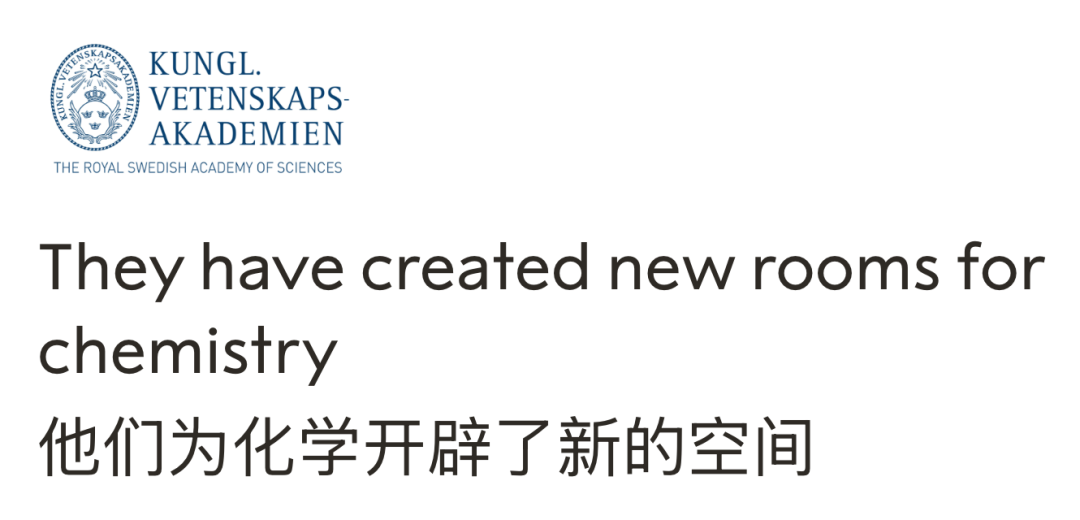
Applications already achieved:
- Harvesting water from desert air
- Removing contaminants from water
- Capturing CO₂
- Storing hydrogen
Today, chemists have designed tens of thousands of MOF structures, revolutionizing chemistry and driving breakthroughs across multiple industries.
---
Meet the Three Laureates
Susumu Kitagawa
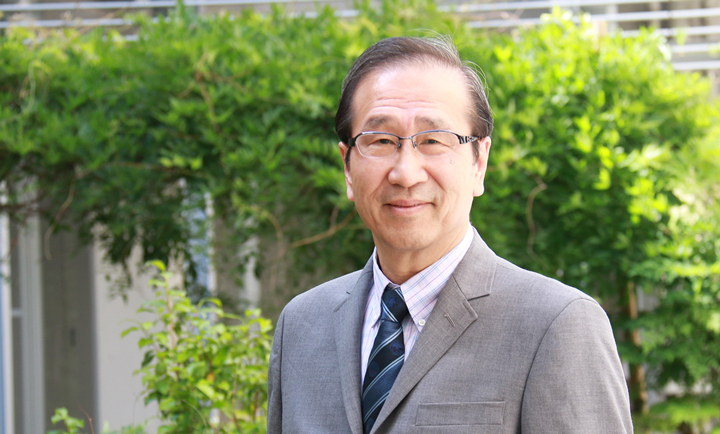
Distinguished Professor, Kyoto University Institute for Advanced Study
- Pioneer in MOF research and Porous Coordination Polymers (PCPs).
- His 1990s work introduced PCPs with permanent porosity and predicted “breathing” pores — reversible opening/closing for intelligent molecular recognition.
Education & Career Path:
- Ph.D., Kyoto University (1979)
- Positions at Institute for Molecular Science and Hiroshima University
- Order of Culture (2017) — Japan’s highest academic honor
Major Awards:
- Japan Chemical Society Award (2002)
- Thomson Reuters Citation Laureate Award (2014)
---
Richard Robson
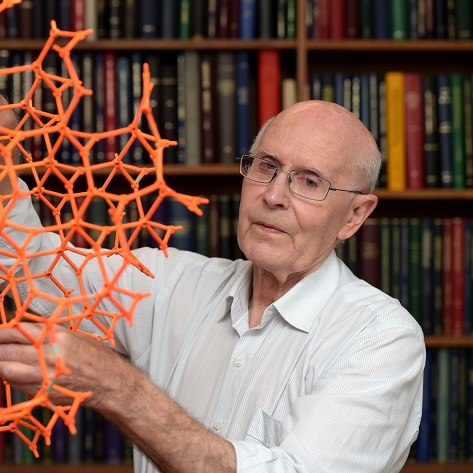
Australian chemist, University of Melbourne
- Early theoretical foundation for scalable framework structures
- 1990 landmark paper in JACS predicted self-assembled 3D networks from metals + organic linkers
- Provided blueprints and principles for the MOF field
Honors:
- Leighton Memorial Award, Royal Australian Chemical Institute (2012)
---
Omar M. Yaghi
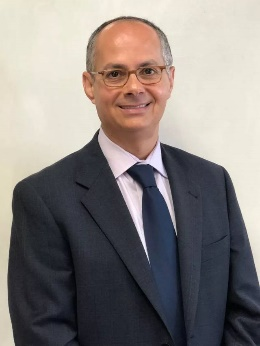
James and Neeltje Tretter Chair Professor, UC Berkeley
- Known as “Father of MOFs”
- Founder of Covalent Organic Framework (COF) materials
Key Achievements:
- Introduced MOF concept in mid-to-late 1990s
- Synthesized MOF-5 (IRMOF-1) — ultra-high porosity record-breaker
- Established Reticular Chemistry — blueprint-driven design for molecular architectures
Applications Advanced:
- Hydrogen storage
- CO₂ capture from air
- Water harvesting from arid environments
Awards & Recognition:
- U.S. Presidential Early Career Award (1998)
- Materials Research Society Medal (2007)
- Israel Wolf Prize in Chemistry (2018)
- Member of multiple national academies
- Consistently ranked among the world’s most cited chemists
---
Broader Impact
These laureates exemplify how conceptual breakthroughs — from theory to function — can reshape entire fields. The ripple effects extend to:
- Environmental sustainability
- Advanced energy storage
- Interdisciplinary applications
---
MOFs, Science, and AI Content Sharing
In the digital era, platforms like AiToEarn enable similar paradigm shifts for content creators:
- Open-source global AI content monetization
- Cross-platform publishing: Douyin, Kwai, WeChat, Bilibili, Rednote, Facebook, Instagram, LinkedIn, Threads, YouTube, Pinterest, X (Twitter)
- Integration of AI generation tools, analytics, and AI Model Rankings
Learn More:
This mirrors how MOF research connects fundamental discovery with real-world impact — by building bridges between innovation and global reach.

